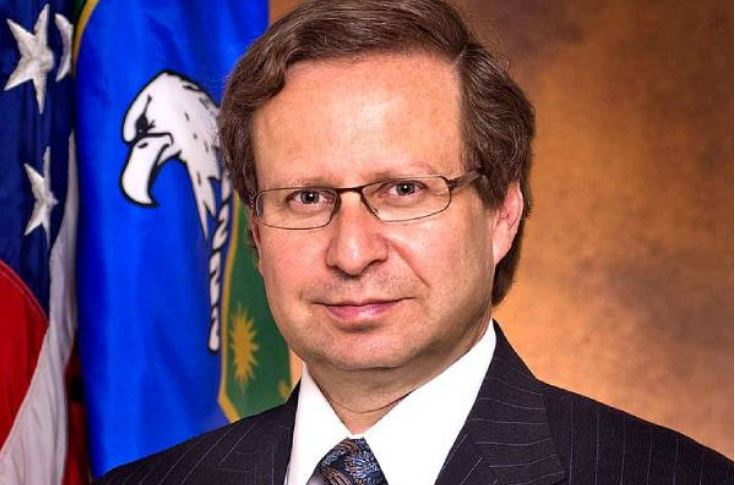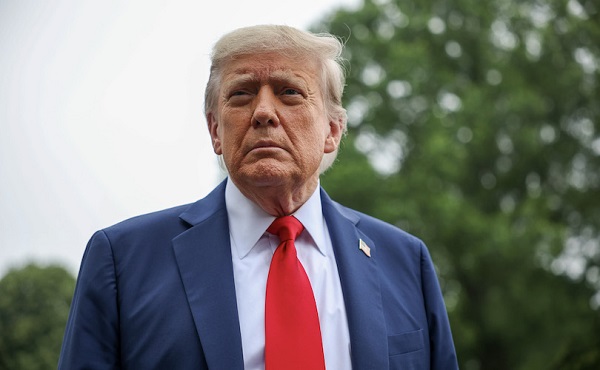Article originally published at CFACT.org
President Barack Obama’s Energy Department Chief Scientist Steven Koonin’s soon-to-be-published book will discuss information that the public really needs to have regarding grossly overheated “climate crisis” media hype.
Titled “Unsettled: What Climate Science Tells Us, What it Doesn’t, and Why It Matters,” a preview of it’s contents is provided in an April 16 Wall Street Journal interview with the author posted by Holman Jenkins, Jr.
Jenkins’ piece is titled “How a Physicist Became a Climate Truth Teller,” and I recommend it to readers who are interested in a fuller book content and author background account.
Having followed the science over more than a decade — and written a couple of pretty good books and likely a hundred or so articles on the subject — I find Koonin’s descriptive accuracy and candor enormously refreshing.
Sadly, few — if any — others in the Obama-Biden White House really cared about facts, paid attention, or learned anything from him at all.
First, because this is particularly relevant to me, Steven Koonin’s background as a physicist combines his technical understanding of applications and limitations of computer modeling of complex systems and practical experience in dealing with real-world realities such as assessing how we can most effectively and efficiently apply fundamental energy principles to meet complex human conditions and requirements.
Koonin taught physics at Caltech for nearly three decades, where he also served as provost; was recruited by the non-profit Institute for Defense Analysis which provided advisory services to military and congressional leaders; worked at JASON, another private scientific organization where he conducted and supervised cold-fusion energy and human genome mapping research; and later worked as chief scientist for British Petroleum (BP) which was later rebranded as “Beyond Petroleum.”
While at BP, Koonin created the multidisciplinary Energy Biosciences Institute at Berkeley which studies a wide range of scientific issues ranging from the isotopic composition of micro-fossils in the sea floor through regulation of industrial power plants.
Steven Koonin’s research into the world’s energy system led him to become convinced that the only “real climate crisis was a crisis of political and scientific candor,” and that the world “isn’t going to be able to reduce [greenhouse gas] emissions enough to make much difference.”
Koonin argues that while he supports responsible climate science, his issue is that what media and activist say about climate science has drifted so far out of touch with the actual science as to be absurdly, demonstrably false.
With reference to a 2019 report by presidents of the National Academy of Sciences which asserted that the “magnitude and frequency of certain extreme events are increasing,” for example, he notes that the “United Nations Intergovernmental Panel on Climate Change (IPCC), which is deemed to compile the best science, advised that all such claims should be treated with “low confidence.”
The U.S. government’s 2017 Climate Science Special Report had claimed that, in the lower 48 states, the “number of high temperature records set in the past two decades far exceeds the number of low temperature records.” On closer inspection, Koonin points out, “that’s because there’s been no increase in the rate of new record highs since 1900, only a decline in the number of new lows.”
A 2018 U.S. Fourth National Climate Assessment which relied on such “ovegged” worst-case emissions and temperature projections, Koonin concludes, “was written more to persuade than to inform.” He says, “It masquerades as objective science but was written — all right, I’ll use the word — propaganda.”
Koonin emphasizes the absurdity of basing climate change alarm on century-long forecasts claiming to know how 1% shifts in poorly understood variables will affect a future global climate that we don’t understand with anything even resembling that precision.
Nevertheless, the IPCC will issue a report next year that will purport to determine how much warming to expect by the end of this century based upon 40-plus computer model simulations which have been diverging in projections — not converging — coming together — as one would hope to enable determination of which one should be trusted.
Without tweaking, the modelers can’t even agree on a current simulated global average surface temperature — varying by 3 degrees Celsius – three times the observed change over the past century.
Koonin, both an experienced computer practitioner and modeling enthusiast, recognizes that they are wonderful where the simulation variables and their interactions being projected are well known and results can be empirically tested.
“But these are more controlled, engineered situations,” he adds, “whereas the climate is a natural phenomenon. It’s going to do whatever it’s going to do. And it’s hard to observe. You need long, precise observations to understand its natural variability and how it responds to external influences.”
Koonin, who has been building models and watching others do so over 45 years, cautions that climate models “are not to the standard you would trust your life or even trillions of dollars to.”
For the record, Koonin agrees — as many of my well-informed climate scientist friends also do — that the world has warmed by about 1 degree Celsius since 1900, and it will likely warm by another degree by the end of this century.
There is no dispute I’m aware of that temperatures began warming at the end of the last “Little Ice Age” in the mid-1800s — before the Industrial Revolution — and will likely continue to do so in fits-and-starts with little or no influence from us until Mother Nature once again changes her mind.
Neither Koonin nor any real-world scientific climate or economic studies, however, have seen anything in the offing which he says “would justify the rapid and wholesale abandoning of fossil fuels, even if China, India, Brazil, Indonesia and others could be dissuaded from pursuing prosperity.”
Even John Kerry, Joe Biden’s “climate czar,” recently admitted that the current administration’s “net-zero” climate plan will have zero effect if developing countries don’t go along, and as Koonin notes, “they have little incentive to do so.”
In any case, Koonin believes that any warming that occurs will emerge slowly and with modest effect — not a runaway crisis that alarmists such as Al Gore and John Kerry hype. To the extent that reduced CO2emissions will make any measurable difference, the solutions should let technology and markets work together at their own pace.
“The climate might to continue to change at a pace that’s hard to perceive, but society will adapt.”
Konnin adds, “As a species, we’re very good at adapting.”
Perhaps the biggest challenge will be to survive the current political climate crisis.
Author: CFACT Advisor Larry Bell heads the graduate program in space architecture at the University of Houston. He founded and directs the Sasakawa International Center for Space Architecture. He is also the author of “Climate of Corruption: Politics and Power Behind the Global Warming Hoax.”
Article originally published at CFACT.org
In 1985, the Committee For A Constructive Tomorrow (CFACT) was founded to promote a much-needed, positive alternative voice on issues of environment and development. Its co-founders, David Rothbard and Craig Rucker, strongly believed the power of the market combined with the applications of safe technologies could offer humanity practical solutions to many of the world’s most pressing concerns. A number of leading scientists, academics, and policy leaders soon joined them, along with thousands of citizens from around the U.S. and around the world.
Today, CFACT is a respected Washington D.C.-based organization whose voice can be heard relentlessly infusing the public-interest debate with a balanced perspective on environmental stewardship and other important issues. With an influential and impressive scientific advisory board, effective collegiate program on U.S. college campuses, CFACT Europe, official United Nations’ NGO representation, Adopt-A-Village project, Global Social Responsibility program, and “Just the Facts” daily national radio commentary, CFACT continues to offer genuine solutions to today’s most important global challenges.
CFACT has been termed “invaluable” by the Arizona Republic, it has been lauded for its “effort to bring sound science to the environmental debate” by a former president of the National Academy of Sciences, and has been praised by a respected Boston Herald columnist for “a record of supplying absolutely solid information.”















